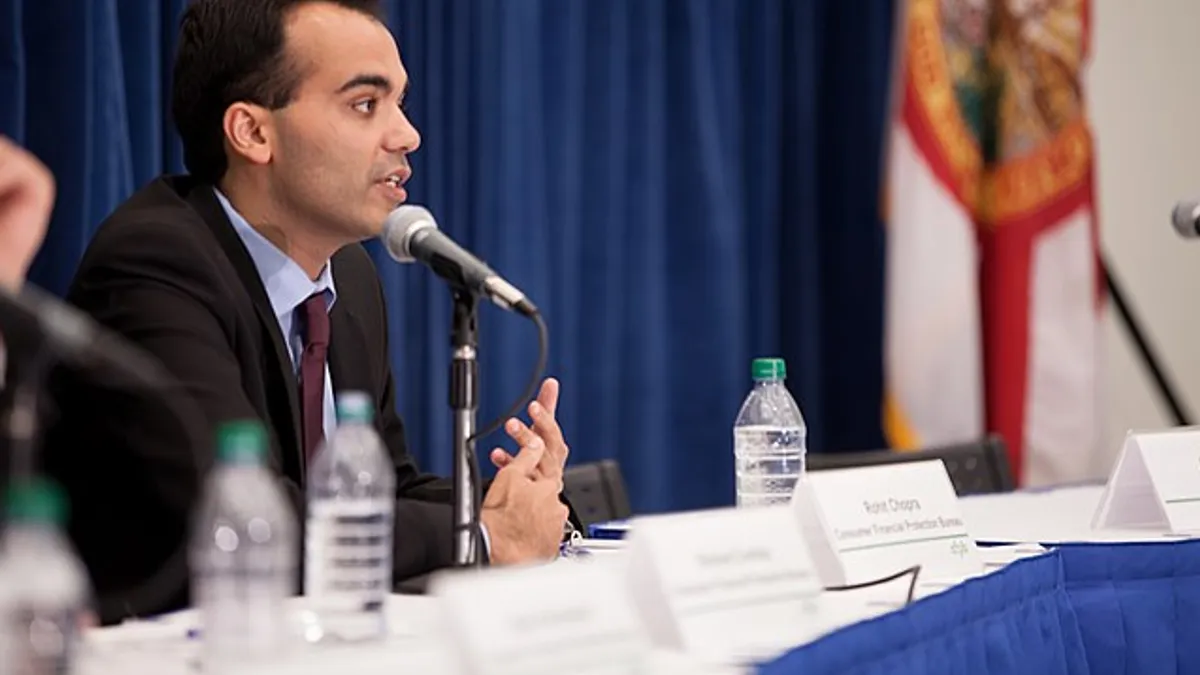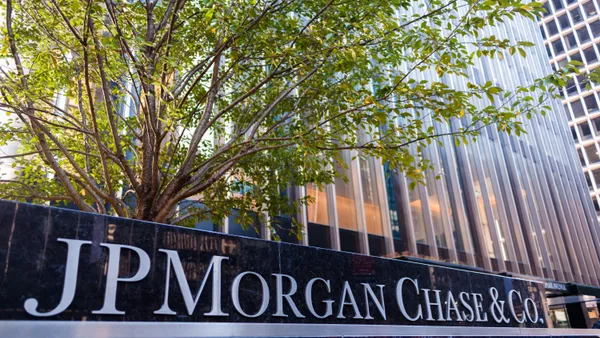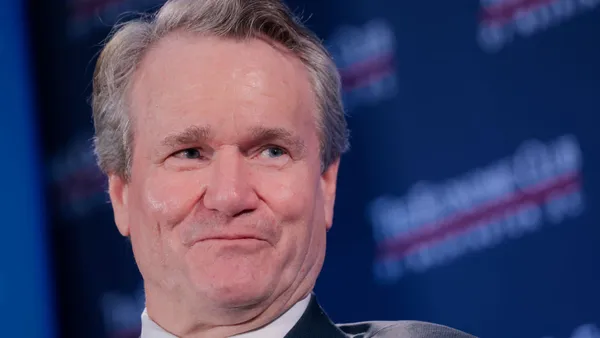The Consumer Financial Protection Bureau is on track to issue its proposal on open banking by October, the agency’s director, Rohit Chopra, told the House Financial Services Committee on Wednesday, according to Reuters.
That matches a timetable the White House’s Office of Management and Budget released Tuesday — a day after Chopra published a post making clear that dominant companies will not have leeway to dictate the terms of open banking.
The rule won’t be finalized until next year, Chopra reiterated Monday, but the CFPB will ask for public comment.
Chopra said in October the CFPB intends to create a policy that will allow consumers to transfer their account histories to a new bank or credit card company. That means they won’t have to start from scratch with a new record of their financial history, which may come in handy for taxes, disputes with merchants, or insurers.
“While not explicitly an open banking or open finance rule, the rule will move us closer to it, by obligating financial institutions to share consumer data upon consumer request, empowering people to break up with banks that provide bad service, and unleashing more market competition,” Chopra said at the time.
Chopra warned Monday, though, that “the agency must not micromanage.”
However, he does expect the CFPB to hover as open banking evolves.
“While the CFPB intends for the market to play a significant role in developing and maintaining open banking standards, it will pay close attention to any attempts to limit consumers’ exercise of their data rights, particularly where such attempts proceed from coordinated efforts by dominant firms,” Chopra said Monday.
Many of the details in open banking will be handled through standard-setting outside of the agency, Chopra said.
“Properly pursued, such standards can allow open banking to evolve as new technologies emerge, new products develop, and new data security challenges arise,” he said.
In comments Wednesday to the House panel, Chopra said he “want[s] to make sure that standards are giving the ability for consumers and all market participants … to switch.”
“When a consumer has the power to vote with their feet, you'll see how our system will give them better service,” he said Wednesday, according to Reuters.
That includes earning higher rates on savings, paying lower rates on loans, and more efficiently managing finances, Chopra said Monday.
The CFPB’s approach to open banking elicited some early support from the corporate world.
“We applaud the CFPB’s approach of combining formal regulations with industry-setting bodies,” the Electronic Transactions Association, said in a statement by email Tuesday. “This dual approach ensures the single best solution for consumers. The complexity and ever-changing nature of open banking demand the CFPB and industry work together to create the most effective policy framework.”
The ETA includes some 500 company members worldwide, including retailer Amazon, Visa and processor giant Fiserv.
One fintech professional, Link Financial Technologies General Counsel Piret Loone, said she was pleased to see Chopra and the CFPB making a move on open banking.
"Thoughtful regulation and standards will empower consumers, encourage competition, and spur innovation," Loone said in an email.















